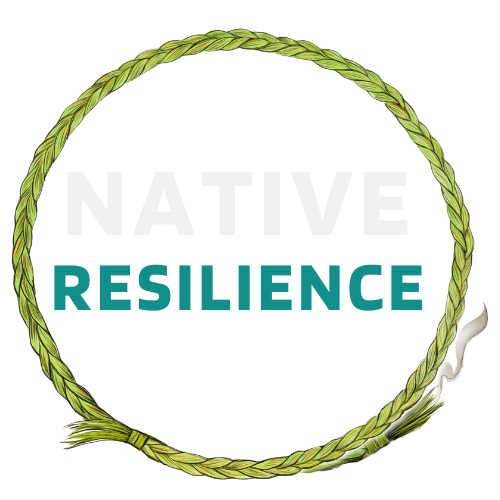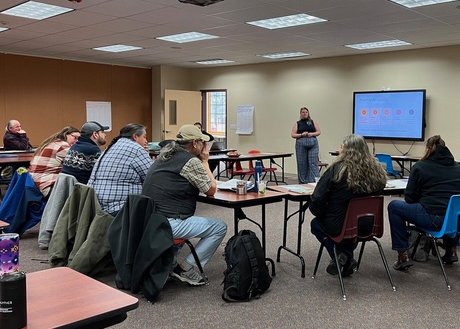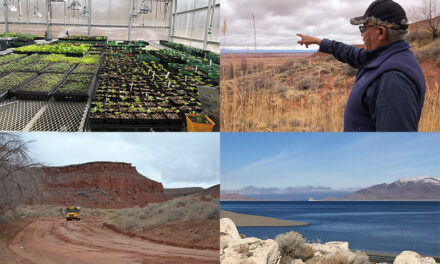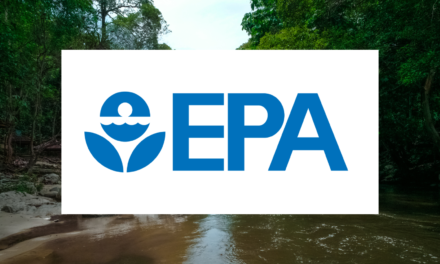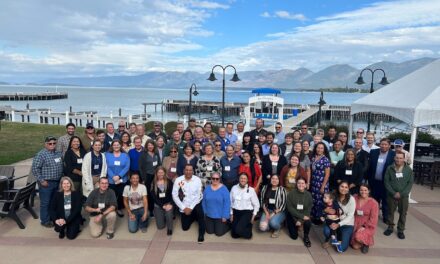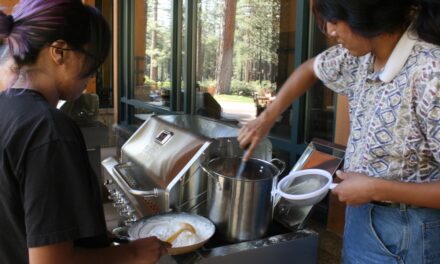On the Flathead Reservation in Montana, climate change impacts such as drought, heat waves, wildfire smoke, and intense cold periods are becoming increasingly familiar to people young and old. In local schools, however, teachers are sometimes challenged with how to incorporate climate change into their curriculum in meaningful ways.
A recent workshop led by Native Climate education team members Ileah Kirchoff and Crystal Miller paired five science educators from the Flathead region with four cultural advisors from the Confederated Salish and Kootenai Tribes to approach this challenge from a collaborative new angle. Together, workshop attendees drew on their areas of expertise in education and traditional knowledge to develop localized, culturally relevant resources for teaching climate change.
“The goal for the workshop was to have teachers create new educational resources that were culturally inclusive,” explained Kirchoff. “We brought together traditional knowledge keepers and teachers to give them time to talk about what they were doing in the classroom now, and what could be done to make it better.”
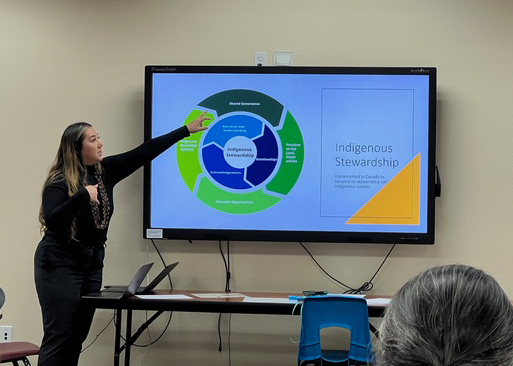
Native Climate Education Fellow Crystal Miller talks to workshop participants about educational sovereignty and Indigenous stewardship of how knowledge is shared. December 16, 2023. Credit: Native Climate.
The workshop began with a series of curriculum examples. The Native Climate team first presented a curriculum that was not place-based or culturally inclusive. Then, they reviewed a curriculum that was place-based but not culturally inclusive, and finally, a curriculum that was both place-based AND culturally inclusive.
“We used these three curriculum variations as an example of how you could create something culturally inclusive from something that wasn’t,” Kirchoff explained.
Next, the NC team facilitated brainstorming sessions to explore possibilities for incorporating cultural knowledge into areas of curriculum that didn’t currently include it. This is where the value of getting cultural specialists in the same room with educators became clear.
“One teacher talked about chemical reactions,” Miller explained. “He had a lot of traditional ecological knowledge in his environmental science classes, but not in his chemistry classes. People talked about ways to incorporate topics such as tanning hides, fire, burning, and other traditional practices into the chemistry lessons to help these topics hit home for the students.”
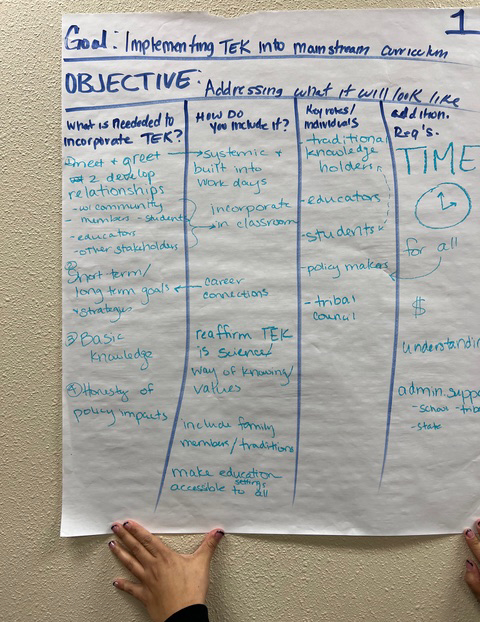
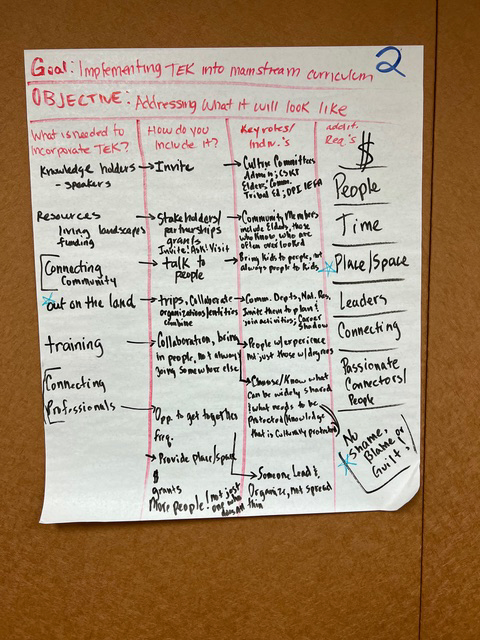
Workshop participants brainstormed different ways to implement traditional ecological knowledge (TEK) into mainstream educational curriculum. Dec 16, 2023. Credit: Native Climate.
As the day continued, the Native Climate team observed new relationships forming between the educators and cultural advisors, and passionate discussions that they hope will continue into the future. Following the workshop, educators will continue working on the resources they discussed and will send the resources back to the Native Climate team later this spring for sharing with other interested teachers.
The best part of the experience, said Kirchoff and Miller, was seeing the active involvement of the local teachers and cultural specialists in creating educational materials that were suited to their community and their students. Teachers who did not initially feel comfortable or qualified to incorporate traditional knowledge into their curriculum walked away with new ideas and new community contacts that they could call on with questions.
“We came in as organizers and got the conversations started, but then really let them guide the work that they were doing,” said Miller. “We are from outside of their community, so it felt really important to go about it in this way, as well as the ethical and responsible thing to do.”
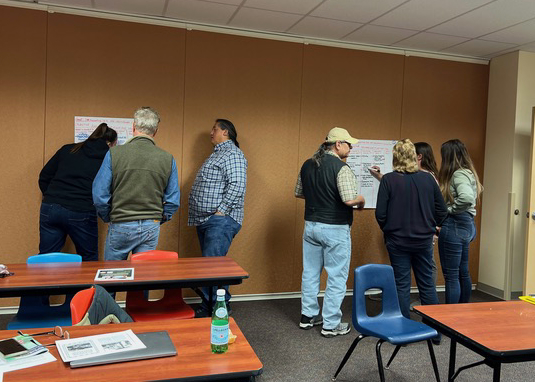
Workshop participants gather in groups during a brainstorming session. December 16, 2023. Credit: Native Climate.
More information
Native Climate’s education team provides support to teachers in creating place-based, culturally relevant climate education resources. To explore some of the curricula and other teaching materials developed through the work of our team and partners, please visit: https://native-climate.com/education/
